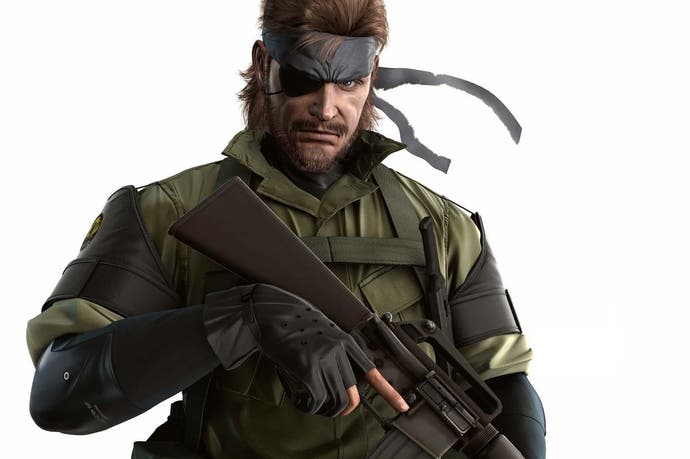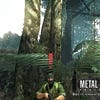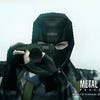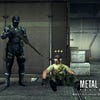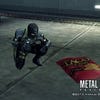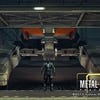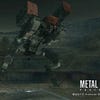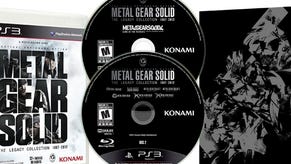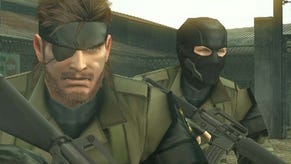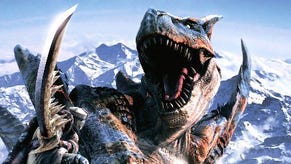Metal Gear Solid: Peace Walker retrospective
The Big Boss: small and perfectly formed.
The reason I don't own a Playstation Vita is because some things can never be forgiven. In greener days I had a crap job, and saved up for months to buy a premium PSP pack at launch - loads of accessories, a few games, a fat £300. Man was I hyped. Fool me once, Sony, and it's shame on you.
The PSP was a handheld that, despite relatively strong sales, never for me delivered on the promise of a portable PlayStation - except once, in its dying days. There are times when I think Metal Gear Solid: Peace Walker is the best game I've played, but on any day of the year it's the best game the PSP ever had - and, much more than that, one intimately bound-up with the hardware.
The PSP's faults were little to do with its capabilities, barring that analogue nub, but more to do with the inability of great developers to bring the best out of the platform. Take the system-selling GTA: Tales from Liberty City, a game designed to be played on a television that was simply manhandled onto UMD - Sony may have had difficulty tempting third parties to the platform, but the third parties had equal trouble designing for handhelds.
It became the home for B-list versions of the titles we know and love; I mention GTA because it's an iconic brand, one I still associate with PlayStation for some reason, and comparable in that regard to Metal Gear Solid. Peace Walker is utterly different, a distillation rather than a dilution that keeps the key characteristics of its parent series intact - and, if anything, makes them seem born for portable play.
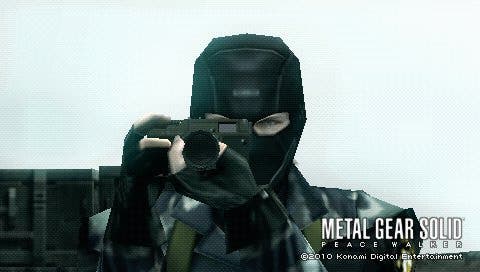
This was Kojima Productions' third PSP title, following the decent-ish MGS: Portable Ops and Portable Ops +, and the apprenticeship shows in the way Peace Walker crams in as much hardware functionality as possible: 2-4 player ad-hoc co-op, wi-fi competitive multiplayer, and alongside these a host of 'incidental' features; send your friend a gift box, for example, exchange some soldiers, or download new t-shirts.
The PSP had its moments before Peace Walker, of course, prime among them the various Monster Hunters - a game that Peace Walker has studied intently, more for its structure than mechanics, and goes so far as to include an officially-licensed tribute to (you can go and hunt a Rathalos). This is important because a handheld isn't like a console, and especially when it comes to multiplayer.
You have a closer relationship with the little chunks of hardware that exist to be carried around, simply by virtue of handling them more - into the protective case, with the little library of classics. I know exactly how long my chugging old PSP 1000 takes to load up Mother Base in Peace Walker, and can pretty much count off the UMD's revolutions. Peace Walker's local multiplayer design fits around the nature of handhelds - and specifically, the nature of people in the same room.
The most obvious point is that you're going to be playing local co-op with a friend. The reason I remember Peace Walker with such fondness is I caned it with a good mate over many days filled with booze, cigarettes, and home deliveries. It was awesome gaming time, a mega session, and the kind of setting that certain of Peace Walker's features are specifically designed for - take 'Snake-in'.
This lets you tag on to your co-op partner with a button press, and unobtrusively follow them around the battlefield - so if it's one player's turn to fetch some cans, or roll the smokes, there's no need to stop playing Peace Walker. It's a feature that seems incidental and yet is utterly critical to the game's character, the atmosphere it creates - toilet breaks, phone calls, cooking, everything is covered by this human touch. It serves no in-game purpose, when you think about it, but in accommodating the way people play enhances the entire experience.
Even more than this, being close to your partner in-game changes things - a circle shows when you're considered close enough to be in 'Co-ops', and then the ammo and health pool become shared. You can both squeeze into a cardboard box (the 'Love Box'), or use Snake-in to have one of you shooting backwards while the other focuses on escape.
The missions are designed for two players - even though it can accommodate up to four, that's only in certain boss fights - and levels can be anything from a single room to a multi-zoned expanse, always just wide enough for pincer movements and co-ordinated strikes. Metal Gear Solid doesn't seem like a game that could necessarily be chopped up without losing something, but Peace Walker manages to turn a long journey into a series of small situations - and then add even more.
What it understands is that a normal Metal Gear Solid game wouldn't work. Instead, Peace Walker aims to create replayable miniatures, variations on a theme that can be explored, mastered, and played through in different ways - with, of course, plenty of secrets. Peace Walker has a gigantic amount of content to back up this design: the Main Ops, which go through the storyline, the Extra Ops, and certain Co-ops that can only be played in multiplayer (most of the game can be played solo). And then beyond even this, certain moments mix up old levels even further - hunting down a rogue general trying to hide in the jungle is an especially funny twist.
It almost risks making things too bitty - even though a game designed for portable play should have short levels, 200 of them in a row can be wearying. So Peace Walker has Mother Base, the meta-game that almost becomes the main game - a home between missions, and an endlessly fascinating series of research menus and operational decisions, one where basic decisions about who to have in the medical bay rub up against development of your own Metal Gear.
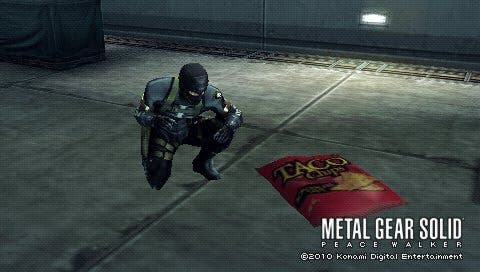
Mother Base links into the main game in one especially fun way - as Peace Walker itself puts it, "Today's enemy is tomorrow's ally!" So capture knocked-out enemies by using the Fulton recovery system, a balloon picked up by a jet, and they'll be interrogated, broken - and join your ranks. Soldiers all have their own stats, and little quirks, and can be sent off on missions or used in-game. Everything feeds into, and feeds off, everything else - you never feel like ten minutes in Peace Walker is wasted.
So as you play the Mother Base gets better, and as that happens more of Peace Walker's world and challenges unlock. Completing the main storyline is a challenge, but comes to seem pretty easy when compared to the endgame, an increasingly tough series of co-op boss fights that boost the tanks and choppers up to ridiculous levels. But by that point Peace Walker has you. It is a game filled with things to discover, secret kit and soldiers and special events and in-jokes, and all of this is brought together by Kodak moments.
Peace Walker isn't the first game to have a camera - it isn't even the first Metal Gear Solid to have a camera. And these days, in the age of instant screenshots on multiple platforms, such an item even seems a little quaint. But the world of Peace Walker is a ridiculous mix of sights and influences, one almost begging to be catalogued. All of the screenshots for this article are from a shared file containing hundreds, taken by me and my co-op partner, something that began with codifying the game-world's beauties and quickly became a posing contest - Metal Gear's world is so surreal, stuffed with oversized taco bags and tuxedos, that what can you do but ham it up?
Those photographs are now shared memories, the blue remembered hills of a Costa Rica past - an amazing place that, in all likelihood, neither of us will visit again. Why would you? To me they feel like holiday snaps - and that's unusual if not unique for a screenshot. I don't think any other game fosters quite the same level of attachment to its images, because it comes down to how you play Peace Walker: in the same room, next to the other player. I look at these screens and remember when they were taken, who I was with, in a way that I never would with PC or console stuff.
Every so often I stumble across the screens and smile, and every time I meet my co-op buddy - who's now moved to a different country - there is always some tiny reference to the game in our conversation, a little joke about putting Kojima in the mess hall, or how his Mother Base was so fat it landlocked Central America. Peace Walker makes Co-ops a shared experience, rather than just a multiplayer game - and the difference is a gulf. It carves out a little niche in your memory that other games can't touch. It becomes personal.
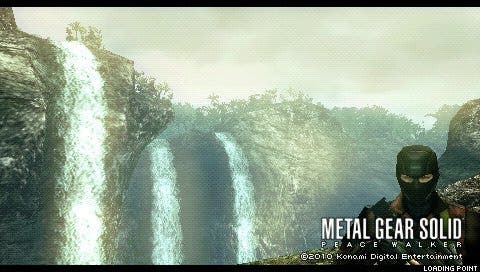
Hideo Kojima's games are often, and with some justification, criticised for their obtuse and ridiculous plots, the long monologues and meanderings through pop culture. But I find they're never quite given enough credit for what they get right; fairly early in Peace Walker, you can find Hideo Kojima hiding in a truck. "Mr Kojima!" exclaims Big Boss, as the fourth wall gives up and goes home.
Kojima then becomes a key member of your research team, and his biography reads: "70% of my existence is made up of movies. It is up to you what to do with the remaining 30%." That has a truth to it. These games are often grandiose, and silly, but that 30% is open for interpretation - Peace Walker has room to become what you want to make of it. That can be a quest to stop a Metal Gear, perhaps establishing yourself as a nuclear superpower, or just taking in the sights with a friend.
Sony's PSP was a console that never delivered as a gaming machine until, right at the end of its life, Hideo Kojima and Kojima Productions blessed it with an all-time classic - a game equal parts intricate and functional, with every touch part of an all-enveloping vision. There's so much I haven't mentioned, from the exquisitely-tuned controls to the outstanding boss fights, nevermind Outer Ops or researching old Sony hardware so Big Boss can use it.
This game is no less than one of the few examples of total design. You can play it straight, and Peace Walker is merely a fantastic Metal Gear Solid, perhaps the only truly portable Playstation game. Or you can Snake-in with a friend, start tinkering with Mother Base, and find out that there's no coffee like Costa Rican coffee. The photos say it all: wish you were here.
